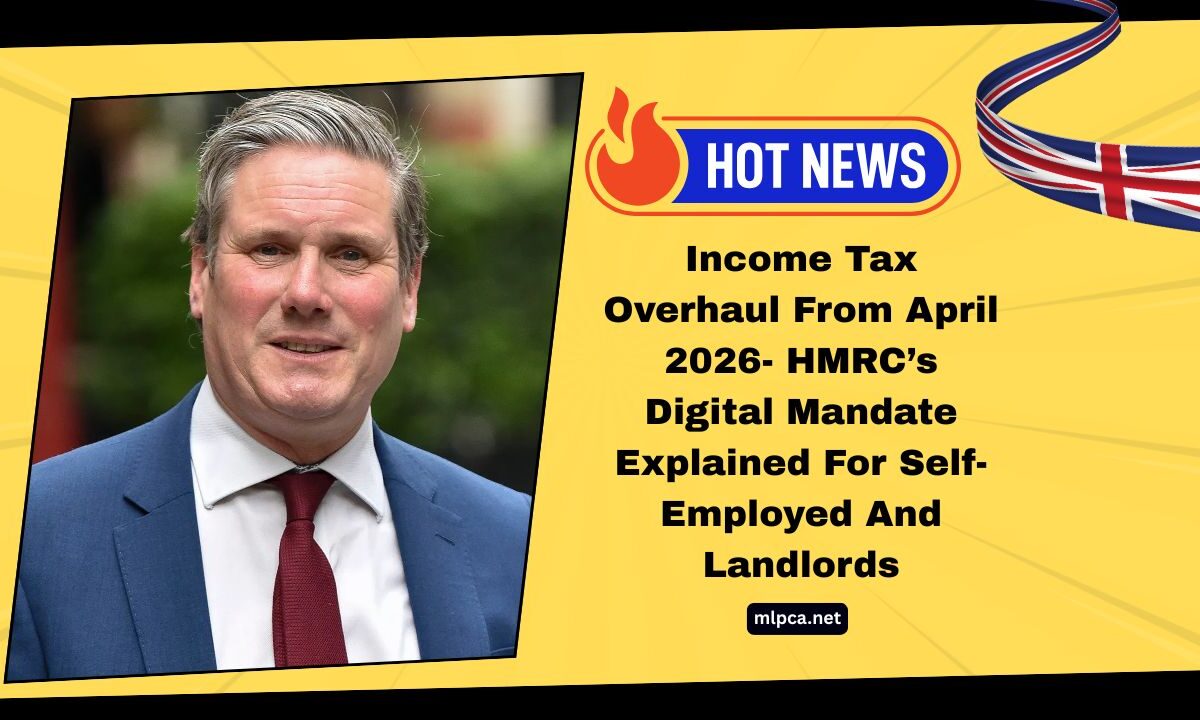The UK tax landscape is evolving, and a major change is arriving in April 2026. The HM Revenue and Customs (HMRC) has confirmed the official rollout of Making Tax Digital for Income Tax (MTD for IT), which will primarily impact landlords and self-employed individuals with a gross annual income above £50,000.
This digital transformation aims to simplify tax reporting, reduce errors, and provide more real-time tax assessments.
Why the Change Is Being Introduced
This shift toward digital tax reporting is designed to:
- Reduce errors in calculations.
- Encourage real-time record keeping.
- Save time for businesses and individuals.
- Improve financial transparency throughout the tax year.
By moving away from paper-based or annual submissions, the government wants to create a streamlined tax experience, where obligations are easier to manage and less prone to human error.
Who Will Be Affected and When
The rollout will happen in three stages based on gross income thresholds, not profit:
| Start Date | Threshold | Impacted Group |
|---|---|---|
| April 6, 2026 | Gross income above £50,000 | Self-employed individuals and landlords |
| April 6, 2027 | Gross income above £30,000 | Additional sole traders and landlords |
| April 6, 2028 | Gross income above £20,000 | Wider inclusion of lower-earning taxpayers |
The initial phase will affect around 780,000 individuals, with another 970,000 joining the program when the threshold drops in 2027.
What Will Be Required Under the New Rules?
To comply with the Making Tax Digital (MTD) requirements, individuals will need to:
- Use MTD-compatible software to maintain digital records of income and expenses.
- Submit quarterly reports to HMRC, including income and spending updates.
- Submit a final statement—similar to a Self Assessment return—by January 31 of the following year.
- Pay any owed taxes by January 31 after the tax year ends.
Benefits of the New System
Adopting digital tax processes provides multiple benefits:
- More efficient record-keeping, reducing reliance on paperwork.
- Fewer tax errors, thanks to automation and tracking tools.
- Improved understanding of tax liabilities throughout the year.
- Reduced end-of-year rush, due to quarterly updates and ongoing management.
Additional Tax Reforms Coming Soon
HMRC has also rolled out several other significant tax reforms in 2025 and beyond:
| Change | Details |
|---|---|
| Employer National Insurance Contributions | Increased from 13.8% to 15% on wages over £5,000 (Effective April 2025) |
| Employment Allowance | Raised from £5,000 to £10,500 to support small businesses |
| Non-domicile Tax Regime | Abolished and replaced with a residency-based system (April 2025) |
| Inheritance Tax (IHT) on Pensions | IHT applies to pension funds from April 6, 2027 |
| Agricultural and Business Property Relief Changes | From April 6, 2026, reliefs reduced from 100% to 50% beyond £1 million |
These reforms, taken together, signify a substantial shift in how the UK tax system operates, emphasizing real-time data, fairness, and modernization.
The HMRC’s new Making Tax Digital for Income Tax initiative marks a pivotal shift toward a digital-first tax regime. Starting in April 2026, self-employed professionals and landlords earning over £50,000 must maintain digital records and file taxes quarterly.
This new system aims to boost efficiency, cut down errors, and bring the UK’s tax system in line with global digital trends.
While adapting may take time, the long-term benefits for businesses and individuals alike are considerable.
If you’re a sole trader or landlord, now is the time to prepare your software, understand your obligations, and plan your finances ahead of the rollout.
FAQs
What is Making Tax Digital for Income Tax (MTD for IT)?
It’s a system introduced by HMRC that requires eligible individuals to maintain digital financial records and submit tax updates quarterly using approved software.
When do I need to comply with MTD if I earn below £50,000?
If you earn between £30,000 and £50,000, you’ll need to comply from April 2027. Those earning over £20,000 will be included from April 2028.
Can I still use spreadsheets or paper-based systems?
No. You’ll need to use HMRC-approved digital software to record and submit your income and expense data.

